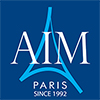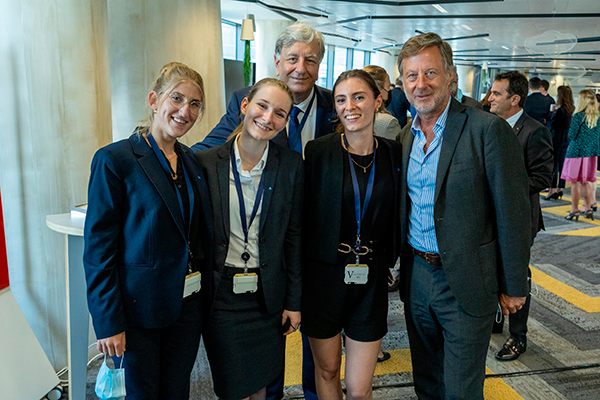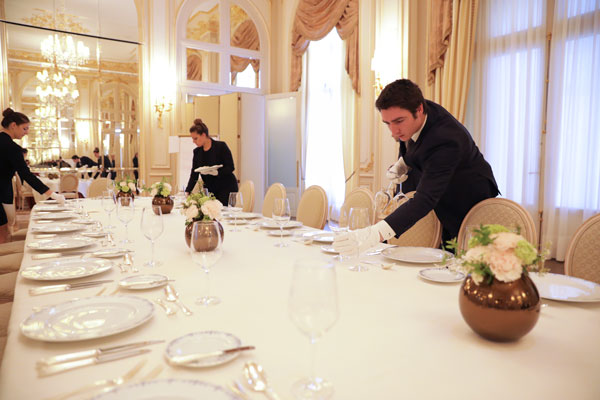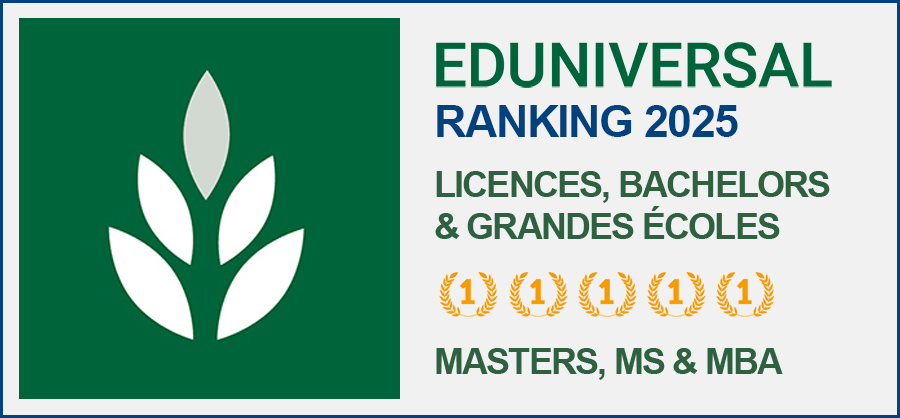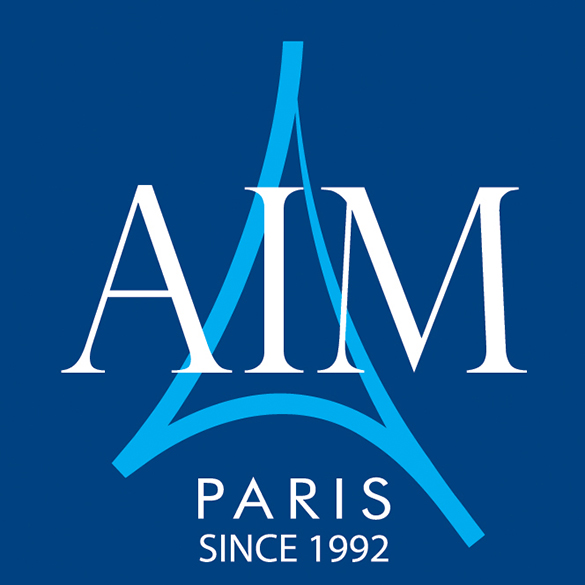Financial Management:
Hotel Operations Decision Making & Measuring Investment Performance
Conducted by Robert Kastner, MBA Cornell University

The objective: Make participants understand that accounting is not just numbers but a powerful tool to better manage all resources.
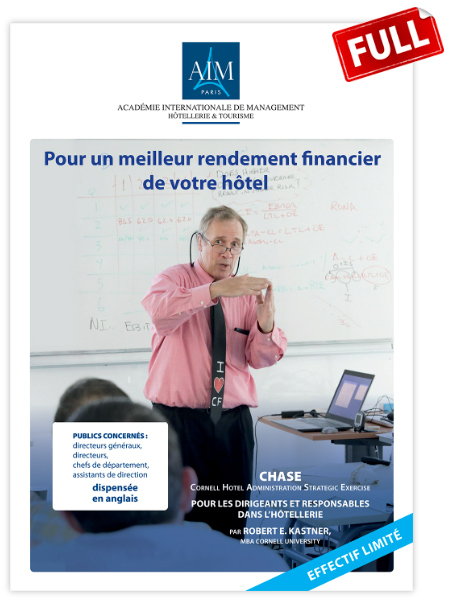
Robert E. Kastner 
Mr. Kastner is widely known as a lecturer and producer of management development programs for the Hospitality Industry. He has had a long association with Best Western International, Embassy Suites Hotels, the Howard Johnson Franchise Systems, Holiday Inns, Inter-Continental Hotels, Hilton International, Meridien Hotels & Resorts and Groupe Accor.
Information and registration: mail@aim.fr

I – Marketing and Operational Performance
The Marketing issues will address:
Market Segmentation, Positioning, Source of Business Mix & Room Type MixUtilization of the CHASE (Cornell Hotel Administration Simulation Exercise) allows the participants to improve their management decision making skill with respect to:
- Pricing and Incentives
- Advertising
- Staffing
- Service Quality
- Room Amenities and Other Operating Decisions
Participants learn:
- How to evaluate financial statements.
- Keep those decisions balanced.
- React to competition and the marketplace and measure success.
Competitive analysis of the other hotels in the simulated marketplace helps to identify opportunities to improve profitability.
General topics such as Yield Management and Trends of Operations are also discussed.
II – Managerial Accounting Concepts and Measures
The Managerial Accounting section focuses primarily on issues above Gross Operating Profit (GOP). This includes the analysis and interpretation of financial information in order to make better-informed decisions.
This understanding includes reviewing concepts and tools such as:
- Cost/Volume/Profit Analysis
- Flexible Budgeting
- Operating Leverage
- Ratio Analysis
- Revenue Management
- Measurement of Conversion of Revenue into GOP
These concepts are applied to the CHASE and discussed as they apply to the “real world” environment. Emphasis is placed on the fact that accounting is not just numbers, but rather a powerful tool to better manage people, performance and profit.

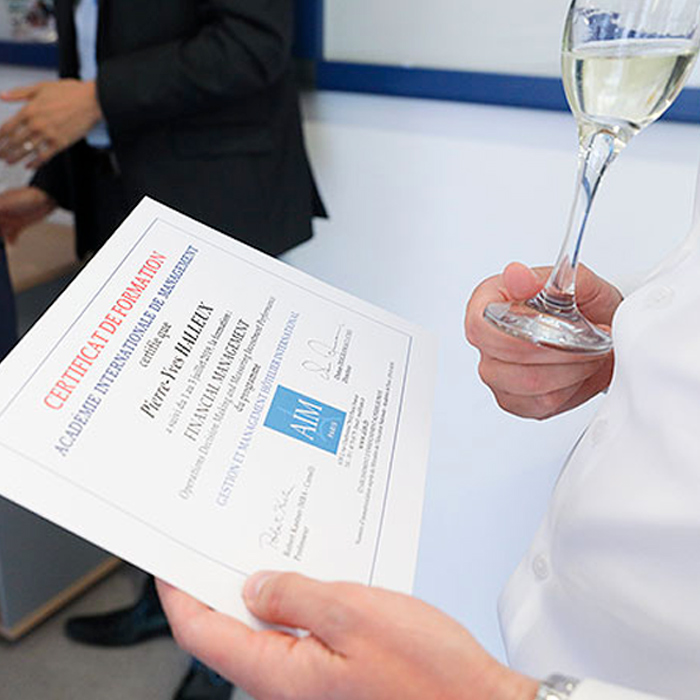
III – Financial Measures of Performance
The Finance segment focuses primarily on issues below Gross Operating Profit (GOP). This includes a discussion of the impact of the owner’s decisions on the hotel’s performance including financial leverage. The analysis concentrates on the economic assessment from the owner’s perspective and presents a clearer understanding of owner’s measures of success and investment criteria including:
- Net Income
- Cash Flow
- Return on Equity (ROE)
- Return on Assets (ROA)
- Return on Capital Employed (ROCE)
- Growth
- Market Presence and Other Criteria
This presentation includes a discussion about the differences between Operating Leverage and Financial Leverage. A focus on both qualitative and quantitative methods is employed to ensure that the participants are able to improve on their weaknesses as well as sharpen their strengths.
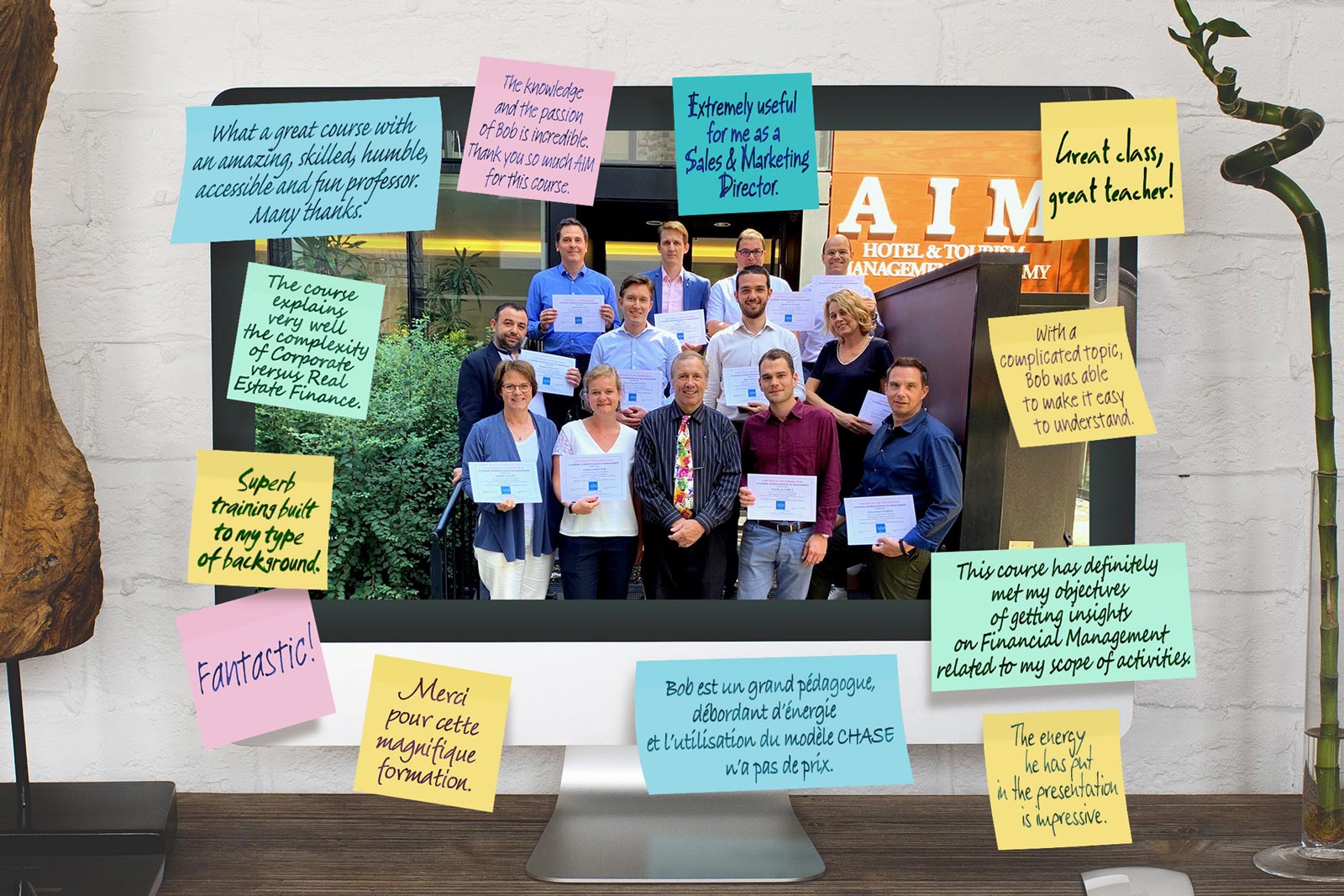
Robert E. Kastner
Robert E. KastnerRobert E. Kastner graduated from Cornell University with both a Bachelor of Science and a Master of Business Administration degree, specializing in finance. After completing his graduate studies, Mr. Kastner taught at Cornell on the faculty of the School of Hotel Administration. His areas of concentration include accounting, hotel financial management, investments, and personal computing.
Mr. Kastner has continued to teach at Cornell’s Professional Development Program and is currently on the faculty of the Institut de Management Hotelier International (IMHI) graduate program at Groupe ESSEC in France as a Visiting Professor, at École hôtelière de Lausanne in Switzerland and at Académie Internationale de Management (AIM) in Hotel & Tourism Management in Paris.
Mr. Kastner is widely known as a lecturer and producer of management development programs for the Hospitality Industry. He has had a long association with Best Western International, Embassy Suites Hotels, the Howard Johnson Franchise Systems, Holiday Inns, Inter-Continental Hotels, Hilton International, Meridien Hotels & Resorts and Groupe Accor.
He has also lectured with Ramada Inns, Hilton Hotels, Hyatt Hotels, AT&T, American Express, Radisson Hotels and Resorts, Sheraton Hotels and Resorts, Westin Hotels & Resorts, Richfield Hotels Inc., Manor Care Hotel Division, the United States Army, Continental Hotels (Romania), Ecola Superior de Hotelaria e Tourismo do Estoril (ESHTE) (Portugal), University of Perugia (Italy), and Escuela Oficial de Turismo (Spain), Indian Tourist Development Corporation (India) and numerous trade associations, schools and colleges.
As President of 9 Tek LTD., Mr. Kastner is involved in the development of client programs and installation of two management simulations, the Cornell Hotel and Restaurant Administration Simulation Exercises, CHASE and CRASE. In addition, he has developed numerous software programs in the area of financial management and hotel development.
Mr. Kastner is married and resides with his wife Linda and two sons, Rob and Brian, in Basking Ridge, New Jersey, USA.
